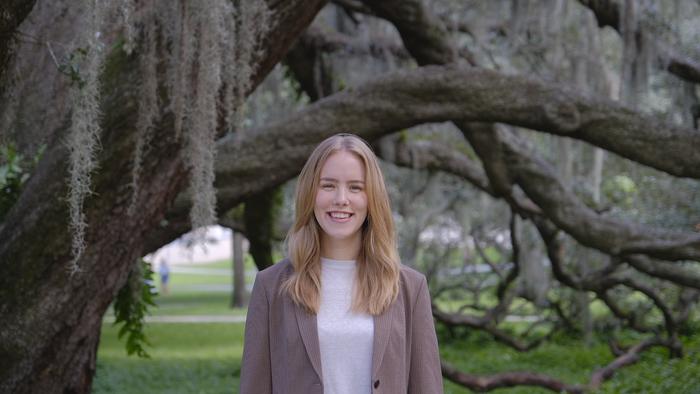Media Contact:
John Dudley
(814) 490-3290 (cell)
jjdudley@usf.edu

Credit: USF
Media Contact:
John Dudley
(814) 490-3290 (cell)
jjdudley@usf.edu
TAMPA, Fla. (June 24, 2024) – Mindfulness – focusing on the present moment – can improve sleep, reduce stress and improve overall health. A new University of South Florida-led study helps explain why.
Researchers studied 144 nurses over two weeks to see how well they could stay focused on the present and how often they fixated on negative thoughts. The nurses completed surveys three times a day and reported their sleep quality the following morning.
The findings shed light on how mindfulness relates to emotion regulation, the way people handle stressful situations, such as a setback at work.
And they provide a clearer picture of how employees and employers can reduce work-related stress, said Claire Smith, the study’s lead author and an assistant professor of psychology in the USF College of Arts and Sciences.
“Mindfulness is often seen as a magical cure-all for employee stress,” Smith said. “The way it’s often spoken about makes it seem as if staying grounded in and accepting of the present moment means you will never be stressed. To me, it’s crucial to add more nuance.”
That’s where the study comes in by providing insight into how the connection between mindfulness and emotion regulation affects sleep quality.
“We know that good sleep restores us physically and psychologically, and it keeps us happier, safer and even more ethical at work,” Smith said. “We wanted to explore which aspects of sleep are influenced by mindfulness and why.”
Smith’s team included three USF colleagues and two Penn State researchers. It was published recently in the journal Health Psychology.
The researchers focused on nurses due to their long, irregular hours and high-stress work environment, which often leads to sleep problems that can affect not only their health, but patient safety.
The study found that mindfulness helped the nurses experience fewer negative emotions and less rumination — repetitive negative thinking.
“For instance, if you got a negative performance review at work, you might choose to shift your focus from negative thoughts of how you have failed and are incompetent to positive thoughts of what you did right and how you can grow,” Smith said.
Smith and her co-authors believe the findings could help employers make better decisions about implementing strategies to boost their workers’ health. Popular employer interventions include mindfulness-based stress reduction programs, along with yoga, meditation, tai chi and therapy. These programs have been shown to help employees manage stress and improve their overall well-being.
“Mindfulness is a hot topic, but we need to understand why it works,” Smith said. “Our research is about going back to the drawing board to understand the reasons behind the benefits of mindfulness at work.”
The authors acknowledge the need for further studies to explore the best methods for reducing work-related stress and how they apply across different occupations, including more traditional office settings outside of health care.
“We hope future research on mindfulness looks at not just big-picture results like better sleep or productivity but also how it affects things like handling emotions,” Smith said. “When an intervention doesn’t work, it helps us understand where the problem is stemming from. When it does work, it tells us why.”
###
About the University of South Florida
The University of South Florida, a high-impact research university dedicated to student success and committed to community engagement, generates an annual economic impact of more than $6 billion. With campuses in Tampa, St. Petersburg and Sarasota-Manatee, USF serves approximately 50,000 students who represent nearly 150 different countries. U.S. News & World Report has ranked USF as one of the nation’s top 50 public universities for five consecutive years, and this year USF earned its highest ranking ever among all universities public or private. In 2023, USF became the first public university in Florida in nearly 40 years to be invited to join the Association of American Universities, a prestigious group of the leading universities in the United States and Canada. Through hundreds of millions of dollars in research activity each year and as one of the top universities in the world for securing new patents, USF is a leader in solving global problems and improving lives. USF is a member of the American Athletic Conference. Learn more at www.usf.edu.
Journal
Health Psychology
Method of Research
Survey
Subject of Research
People
Article Title
Be present now, sleep well later: Mindfulness promotes sleep health via emotion regulation
Article Publication Date
30-May-2024



